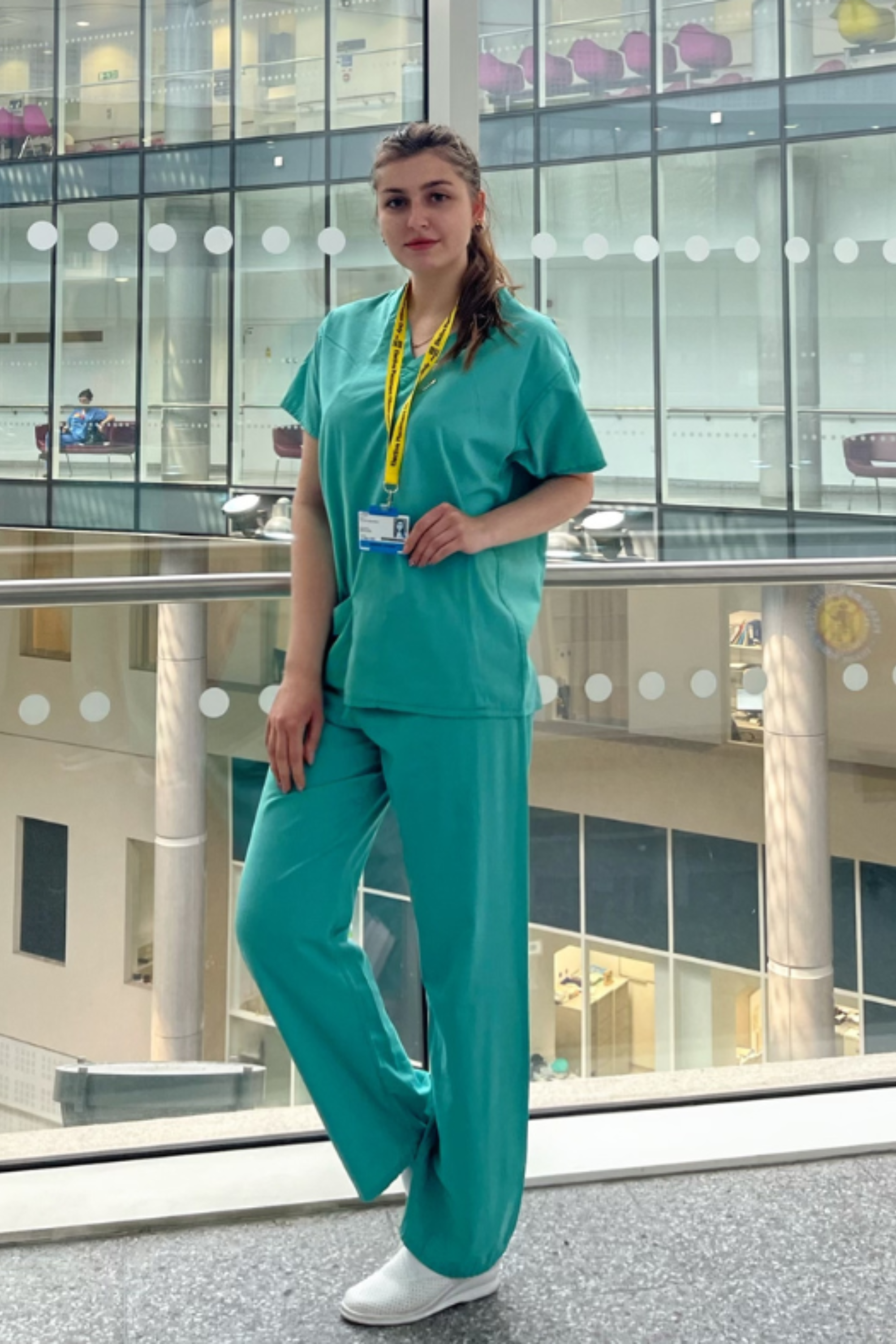Queen Mary University partners with Ukrainian university to ensure students’ medical education not disrupted by war
Queen Mary University of London recently partnered with the Odessa National Medical University in Ukraine. As part of this partnership, students will be offered a six-week clinical attachment at the Barts Health Hospital.
.png)
Students from Odessa National Medical University on top of the Royal London Hospital helipad in 2023
This partnership was set up as a direct response to the conflict in Ukraine – and aims to provide medical students with clinical experience that has been disrupted by the ongoing war.
We spoke to some of the first three students from Odessa about their experiences over the past six weeks…
Julia’s stay in London

One of the three students from this cohort is Julia. She has spent four weeks on the trauma ward, and the final two weeks on gynaecology.
“My time at Queen Mary and Barts Health has been great,” she explains. “I have had an excellent introduction to the trauma ward – I would say the best introduction, actually. I want to say thank you to the trauma team – it’s such a good team.”
“London is really cool. The first thing I visited was the National Gallery. I had always dreamt of seeing Van Gogh’s Sunflowers – I have this image on my Instagram of it. Oh my god, it was so incredible. I read that Van Gogh said that sunflowers follow the sun like people follow religion, like lovers follow affection. It really spoke to me.”
Julia has been very impressed with how welcoming people in London have been.
“When you need help, people help you. I couldn’t find my rescheduled train and people helped me. The Queen Mary University team made me feel most at home here. When I have a problem, any hour, the team have helped me. During my stay in London I felt very comfortable and cosy.”
Julia wants to be a good doctor
“My plan for the future – I want to be a good doctor,” Julia explains.
“Thanks to Queen Mary I have this opportunity – I have had fantastic practice in the Royal London Hospital. I have gained new knowledge and new skills – I really understand what specialisms I want to get – in surgery, general surgery or gynaecology.
“I will take a lot of new information and new skills with me back to Odessa. Hospitals in London have great new modern equipment. I would love for the same to be in Odessa – as it would help people to save the lives of patients and reduce the time people had to wait for surgeries. I hope in the future our economic situation will be better and we can do operations using similar equipment.”
Serhii was nervous at first
Serhii has also been on a six-week clinical attachment. He spent four weeks on trauma and two weeks on cardiology. “From the first moment I was a bit nervous,” he said.
“But after spending time with the consultants I was relieved. It was so nice to know that people here are so open and willing to help you, open to give advice, answer your questions – starting from junior doctors all the way to senior doctors. I wasn’t afraid to ask questions in the end.”
He also really enjoyed the campus experience at Queen Mary.
“I felt like I was in a TV series! I’d never seen a student campus before. I was in a dormitory in Odessa but it was nothing like this. It’s like a little student town. It was really great. I loved it.”
Serhii said he really enjoyed his time in London.
“It took a while to realise how tremendously big London is. I loved the Victoria & Albert Museum. It’s almost unfair how much you can see there – and all for free!”
He also found some British expressions quite funny. “Everybody keeps saying ‘sorry, thank you, cheers.’ At first I found it funny but now I find myself saying it.”
“I didn’t know a year ago that I would have such a great opportunity – to see this city and to work with such specialists. Unfortunately, for the past few years, we have been unable to practice in Odessa due to the impact of COVID-19 and the ongoing war. However, thanks to Queen Mary, I have been provided with an invaluable opportunity to gain the clinical experience that every medical student needs so much.”
The future of the partnership with Odessa National Medical University
Queen Mary University will continue its partnership with Odessa National Medical University – hoping to bring a larger group of students for six-week attachments at the Barts Health Hospital in the coming months.
Speaking about the partnership, Professor Sir Mark Caulfield, Vice Principal for Health for the Faculty of Medicine and Dentistry, said:
“Queen Mary aims to be the most inclusive university of its kind. Ukraine needs to be able to train future doctors through direct engagement with patients and since the war started, because of frequent air raids, these students have had no clinical experience. By offering six-week hospital attachments we hope we can help Ukraine train the vital health professionals they need for their health service.”
Related items

11 December 2024

5 December 2024

2 December 2024